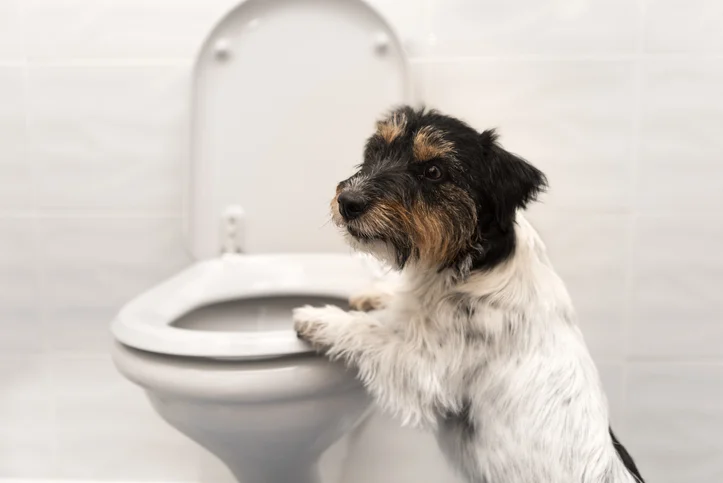Your Effects of Flushing Animal Waste Down the Toilet
Your Effects of Flushing Animal Waste Down the Toilet
Blog Article
What are your thoughts and feelings about Should you flush animal waste down the toilet?

When it comes to dealing with waste, specifically animal waste, many people often turn to the hassle-free alternative of flushing it down the bathroom. Nevertheless, this apparently easy option can have significant effects for the setting and public health. In this article, we'll explore why flushing pet waste down the commode is a negative concept and offer alternate approaches for appropriate disposal.
Intro
Proper waste disposal is essential for preserving ecological sustainability and public health. While it may appear safe to purge animal waste down the bathroom, it can bring about numerous issues, both for the environment and human health.
Risks of flushing pet waste
Environmental impact
Flushing animal waste presents unsafe bacteria and virus right into waterways, which can negatively impact aquatic ecological communities. These pathogens can contaminate water resources and harm aquatic life, disrupting fragile environments.
Public health concerns
Animal waste has unsafe microorganisms such as E. coli and Salmonella, which can posture severe wellness risks to human beings. Flushing animal waste down the toilet can contaminate water materials, bring about the spread of diseases and infections.
Alternatives to flushing
Instead of flushing pet waste down the commode, there are several alternative disposal approaches that are a lot more environmentally friendly and sanitary.
Composting
Composting animal waste is an eco-friendly way to get rid of it. By composting, raw material is broken down into nutrient-rich soil, which can be utilized to feed gardens and plants.
Land fill disposal
Throwing away pet waste in a land fill is an additional option. While not as environmentally friendly as composting, it is a more secure option to flushing, as it stops the contamination of water resources.
Family pet garbage disposal systems
There are specialized animal waste disposal systems readily available that safely and hygienically take care of pet waste. These systems usually use enzymes to break down waste and eliminate odors.
Actions to appropriate animal garbage disposal
To ensure appropriate disposal of animal waste, adhere to these steps:
Scooping and getting waste
Routinely scoop and bag pet waste using biodegradable bags. This avoids waste from polluting the atmosphere.
Making use of designated waste containers
Dispose of bagged pet waste in assigned waste containers, such as garden compost containers or land fill bins. Prevent flushing it down the bathroom at all costs.
Cleansing litter boxes and pet areas frequently
Regularly tidy can and pet dog areas to avoid the build-up of waste and microorganisms. Use pet-safe cleansing items to keep hygiene.
Advantages of proper disposal approaches
Adopting correct disposal techniques for pet waste supplies a number of advantages:
Reduced environmental pollution
Appropriate disposal approaches lower the danger of environmental pollution, securing waterways and ecological communities from contamination
Reduced risk of water contamination.
By preventing flushing pet waste down the commode, the risk of water contamination is significantly minimized, safeguarding public health.
Improved cleanliness and hygiene
Proper disposal methods promote better cleanliness and hygiene, producing a safer environment for both humans and animals.
Conclusion
To conclude, purging animal waste down the bathroom is unsafe to the setting and public health. By embracing different disposal approaches and adhering to appropriate waste administration practices, we can reduce the adverse influence of animal waste and add to a cleaner, much healthier planet.
What To Do With Dog Poo – The Do's And Don'ts Of Disposing Of Faeces
Dog poo bins
Some councils provide dedicated dog waste bins in popular dog-walking areas that can take dog poo that has been bagged but you can legally dispose of dog waste in any public litter bin, as long as it is securely bagged. This also applies to your wheelie bin at home.
Do not flush
Water companies do not recommend flushing dog faeces down the toilet because certain parasites can survive the water processing treatment and are potentially harmful to humans. You should also never consider flushing dog poo that has been bagged down the toilet as the bags will not break down and instead create severe blockages in the sewage system.
In the woods
The Forestry Commission promotes a ‘stick and flick’ method for dealing with waste in the woods. This means finding a stick and using it to flick any poo from off the path so that it is out of the way of other walkers. You could also bury it as long as it is not in an area where there might be livestock.
Livestock
Parasites found in dog poo can be transmitted to livestock if they inadvertently eat infected faeces that has been left on grazing land. This could result in the death of sheep or abortion in cattle so you should always make sure you pick up your dog’s waste in fields where livestock could be present.

As a keen reader about 10 Things You Should Never Flush Down The Toilet, I figured sharing that piece was really useful. Loved our blog posting? Please share it. Let other people discover it. Thanks so much for taking the time to read it.
Call Today Report this page